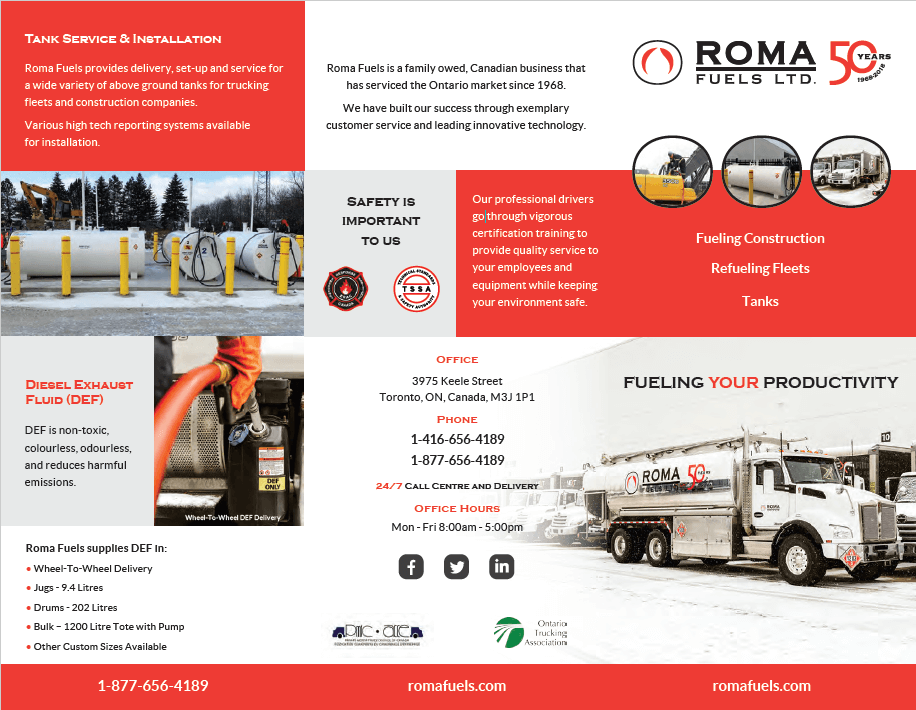There comes a time when many people decide that they want to do some preparations in case an emergency were to happen. This is a valid concern when we are so reliant on electricity in this day and age, and so many of us have generators to power our homes during an outage, but what use is the generator when it runs out of fuel? To avoid this, what we need is some emergency fuel storage on stand by to avoid being left in the dark. But storing fuel does require some considerations for the long term, we are planning for an emergency after all, and fuel is one of the first things to run dry during an emergency. We’ll look at 3 common types of fuel that you might be storing for your generators and or appliances.
3 Fuels For Emergency Fuel Storage
Storing Gasoline
Perhaps the most common fuel people will be storing, gasoline will be one of the first things to run out when people are stocking up due to how easily accessible it is. Some people make the mistake to only store as much as they need in a normal day-to-day usage. What happens when the emergency lasts for a week or more then, well, problems will arise.
To that end, figure out what your usage might be like in a full emergency situation and stock up an amount that will last you for whatever period you decide. Now, emergencies aren’t lurking around every corner, so we need to make sure our fuel is good for a long time. This can be a bit difficult with gasoline as it’s an unstable fuel. Typically you’ll get about six months out of it before it is noticeably bad, which isn’t very good when planning for the long term. Fortunately there is a way to fix this in the form of fuel stabilizer.
By using stabilizer in your gas, you will vastly increase its lifespan, by several years in some cases. Stabilizer will have to be added yearly though, so you can’t add and forget about it.
Storing Diesel
Unlike gasoline, diesel is a much more stable fuel and breaks down at a slower rate. You can get about a year from stored diesel under the right conditions without doing anything directly to it. There are issues however, diesel can develop algae while sitting for a long time, which will ruin it and its storage receptacle. Avoiding this is done by adding diesel stabilizer to it to avoid the build up and break down, while increasing its shelf life up to 5 years in some cases.
Where And How To Store Gas & Diesel
Due to the similarities between these fuels, the where and how to store them is similar enough that we will group them together. Generally speaking, what you want out of a storage location is a place that keeps the fuel away from heat, light, and water. These fuels will break down faster when kept in warmer temperatures. Light is another contributing factor in the breakdown of fuel, which is why you should never be using a clear container for such things. Water will completely ruin fuels when large build up occurs, and can ruin the storage receptacle as well as the fuel.
Ensuring the storage location is a good spot is also key. Don’t keep these stored inside of your house or in an attached storage unit, should combustion occur, you’re going to have problems. A good spot is a detached shed of some sort that’s away from the house. Keep it well ventilated to avoid the buildup of moisture and, more importantly, fumes from the stored fuel, specifically the gasoline.
Make sure your shed, or whatever storage place you decide on, is able to shed heat well. It won’t due to have it boiling in there during the summers. Keeping electrics or anything that may cause sparks away is also good, for hopefully obvious reasons. Use an appropriate fuel can or jug when storing as well, and pay attention to the high fill line. Under filling may cause moisture to build up, and over filling may cause pressure to build up.
Storing Propane
Another one that is commonly used, and easily available is propane. This is used for far more than just firing up the grill. There are entire back up generators powering homes that run on propane. Fortunately propane is a bit more versatile and long lasting the gasoline or diesel.
Assuming no damage to the tanks or valves that could cause leakage, propane has a nearly indefinite shelf life. The containers themselves usually have use by dates on them, requiring inspection and recertification every 10 to 12 years. How long they last once again depends on how much you will be using. Do some calculations and stock up appropriately.
Keeping the tanks stored has similar considerations to the other fuels mentioned here. Never store them inside your house, garage, or other attached storage unit to your house. Store them away from wet conditions, keep them from overheating, and, of course, keep them away from open flames. Keep them level, in a well ventilated area, and make sure the relief valve is in the proper alignment with the internal liquid.
Be Prepared
Remember to have enough fuel stocked up for whatever length of time you determine ahead of an emergency happening. You can only use what you’ve got when supplies run out. Keep it stored properly and safely.
You can testogel bodybuilding pilates helps strengthen download the PDF Here: Fueling Your Productivity – Brochure
COVID-19 UPDATE
Given the current situation regarding COVID-19 we wanted to let our clients know what we are doing to help with this issue:
- We we will remain open for business at this time.
- We plan to continue our normal operations.
- We are carefully monitoring the health of our entire staff. If anyone is experiencing any cold or flu-like symptoms, we will ensure they remain at home for the recommended amount of time.
- We want to keep you and all of our staff safe and healthy.
- We will be suspending accepting signatures on delivery tickets in order to slow to spread of the virus and practice social distancing
Your health, and the health of our community, is extremely importance to us. We will all get through this together!
Yours Truly – The Roma Fuels Team

